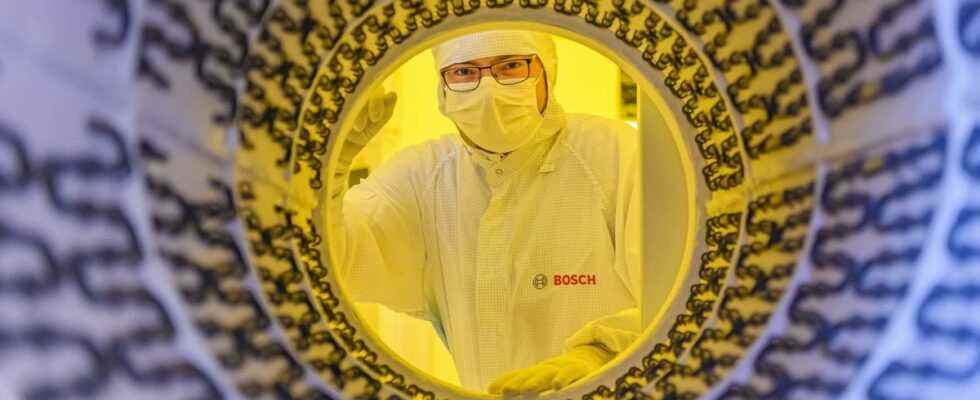German automotive supplier Bosch is to make the biggest investment in its history to make Europe competitive in the semiconductor market.
The German juggernaut Bosch announced on July 13 that it wanted to invest, by 2026, 3 billion euros in the semiconductor market. A decision that falls within the framework of the Important Project of Common European Interest (IPCEI) on microelectronics and communication technologies.
These 3 mbillion euros will be distributed among various projects. First of all, 170 millions will go towards the creation of two new development centers in Germany, the first in Dresden, the second in Reutlingen. Then, 250 million euros will be used to expand the recent plant in Dresden. Investments that will therefore allow the development of the electronic chip market in Europe.
Stefan Hartung, Chairman of the Executive Board of Bosch, spoke at Bosch Tech Day 2022: “Microelectronics is the future and is vital to the success of all Bosch business areas. With it, we hold a master key to tomorrow’s mobility, the Internet of Things and what we at Bosch call ‘Invented for Life’ technology.“
An attractive Europe
Thanks to the European Chips Act project set up by the European Union, the German manufacturer then started the machine in order to allow Europe to impose itself in the electronic chip sector. The objective is to double the European share in the world production of electronic chips, currently 10%.
This would also allow the Old Continent to reduce its dependence on the various Asian firms that dominate the market. A challenge, but also a future, which Stefan Hartung understood well: “Europe can and should capitalize on its own strengths in the semiconductor industry. More than ever, the objective must be to produce chips that meet the specific needs of European industry.“
All this investment would then make it possible both to establish itself in the sector of micro-electromechanical systems (or Mems), but also to push research and innovation, particularly in the semiconductor sector, these chips allowing the electrification of cars. For Stefan Hartung, “being a leader in innovation starts with the smallest of electronic components: semiconductor chips“. Usually produced using conventional silicon, the chips could soon be based on silicon carbide. This would theoretically increase the range of electric vehicles by 6%.
